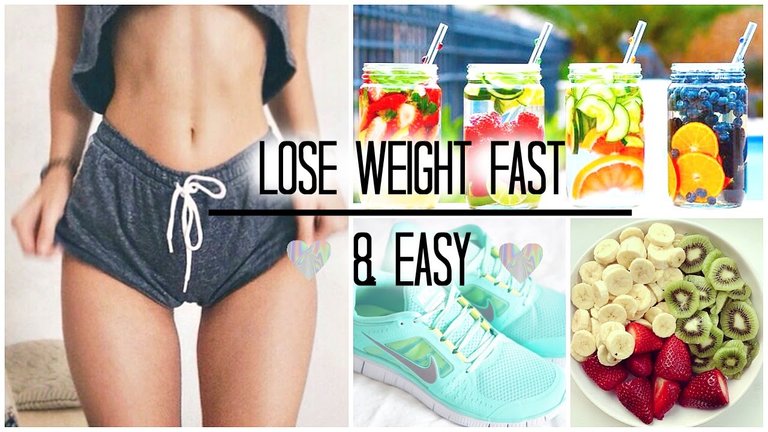
Research has shown that most overweight people are carrying around 10-20 pounds of unwanted body fat. Research has also shown that most diets fail.
From my experience, most diets fail because they take the long, slow, boring approach to weight loss.
When weight comes off at 1-2 pounds a week, the rewards for the sacrifices it takes to get there really aren’t worth it. This Guide accomplishes in 3 weeks what most diets take 4-5 months to do.
This System was specifically designed to be an extremely rapid method for burning between 10-20+ pounds of body fat.
I understand that for a diet to be ultra- successful, it absolutely must produce very rapid results.
When results come quickly, the dieter receives necessary feedback that the diet is working, and that it’s worth doing.
This results in the dieter sticking with the diet. When the dieter sticks with the diet, the results snowball and the outcome is successful weight loss and a brand new body.
This is why This revolutionary diet works!
You will soon see that you will notice favorable body composition changes in the very first couple of days on the diet.
In the very first week alone, you will likely see in the neighborhood of 10 pounds of fat stripped away from your body. Your clothes will be looser… you’ll feel lighter… and you’ll look and feel 10 times better!
21-Days to Make a Habit
Research has shown that it takes approximately 21 days for us to develop a new habit. This means 21 days of eating healthy...
21 days of going to the gym..
21 days of doing whatever it is that you want to implement as a habit into your life.
Far too often, when we try to implement a new habit into our lives we look at it in an unmanageable light.
Because of this, these new healthy habits never get off the ground because instead of focusing on just 21 days, we sabotage our goals with the mindset that we will have to sacrifice forever.
So, Instead of starting out with thoughts of making a new habit for life, you can make it a lot easier simply by telling yourself that you are only going to “try” this diet for just 21 days.
We can all do 21 days, right?
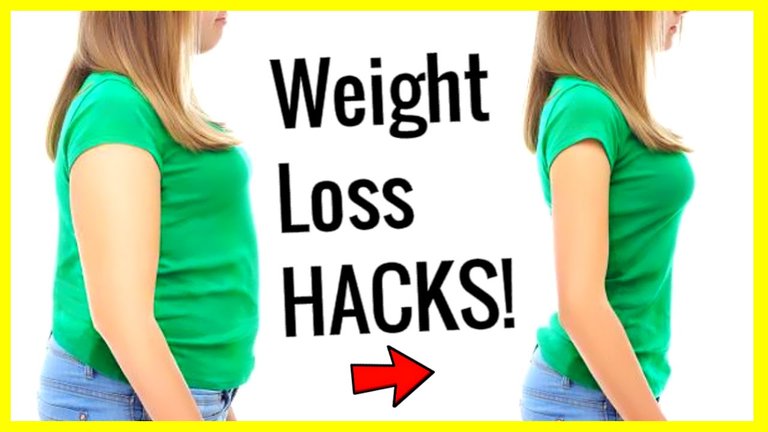
Let your brain “know” that once this “trial period” is over, you can go back to your old eating habits and lifestyle.
Then, while your brain lets you participate in this “trial,” it will also be working to form new neural pathways - once it realizes that the new habit has benefited you positively in some way.
This is the science behind how we develop habits, and research has shown that it takes approximately 21 days to develop new habits… and to break old ones.
Now your brain will have noticed that it now takes less work to move your body throughout the day, because it has shed so many pounds.
It will notice the increased energy you have as a result of your daily walks, weekly resistance training and other exercise components of this diet.
Your body will also take note of your physical appearance, your muscle tone and how your clothes now fit much more loosely.
Basically, your brain will see remarkable benefits which will stick with you and cause you to follow along the path of good eating and exercise habits for life.
Now, understand that research has shown neural pathways to any habit (even those bad ones) can be lifelong, which means bad habits can resurface when triggered to do so.
This means that you constantly have to be aware of your thoughts and you need to make conscious efforts to avoid engaging in those bad habits of the past.
Believe me, after 21 days, it’s relatively simple to convince yourself to avoid those bad habits of the past.
While you will be able to indulge in your favorite foods, they will not be able to take over your life.
My intention in this guide is not only to burn fat away fast but to also force new, good habits of eating and regular exercise that will stay with you forever.
This will ensure that you get the body you’ve always wanted and keep it for life.
The Truth about Weight Loss
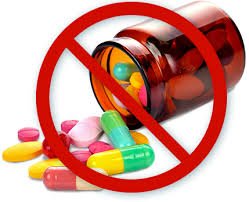
Let’s face it. There is simply no other industry in the world that is more confusing or more contradictory than the diet & fitness industry.
Ask ten so-called “fitness experts” what the best way to lose weight is, and you’re very likely to get ten different answers.
But who’s right? Who’s wrong? And how do we know?
The fact is, the diet & fitness industry is a multi-billion dollar industry that spends hundreds of millions of dollars every year in an effort to convince us that they hold the “quick & easy” solution to our weight loss problems.
These “solutions” come in many forms, be it pills, powders, prescription drugs, gadgets, gizmos, personal training, medical weight loss clinics, pre-packaged meals, books, magazines…. you name it.
And their marketing efforts have tremendous reach as they use television, internet ads, billboards, radio, etc. Heck, even some of the biggest fitness magazines in the marketplace are actually owned by supplement companies themselves!
Now, don’t get me wrong… many of the methods listed can have an impact on weight loss.
But nothing can strip the weight off faster than the combined methods you’re about to learn.
I realize that, in an age of sensationalism, many readers are expecting me to pull some “magic pill” out of my hat and reveal some “secret” fat-loss method that no one else knows about… but that won’t necessarily be the case.
Some of the methods involved are likely things you have heard about before.
Others will be things you’ve probably never heard of… while still others will be things you likely dismissed or simply didn’t understand.
One of the biggest problems is that most people don’t understand how these methods can work together… or how to implement these methods the right way for maximum weight loss. But trust me.
These methods really work. And they work faster and more permanently than even the most powerful prescription diet drug and the most intensive workout program COMBINED!
The purpose of this book is to give you what works… without all the fragmented information you have been subjected to… and without all the confusion and contradictory advice.
How We Get Fat
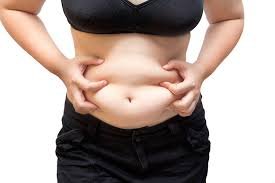
If you’re expecting me to point the finger at any specific macronutrient in your diet as the cause for your excessive weight, it’s not going to happen.
Quite simply, we do not get fat by eating carbs and we don’t get fat simply by eating fat. We get fat through abundance—by consuming more calories than our body needs on a daily basis, over a period of time.
You and I both know that your excess weight did not just happen overnight from eating a candy bar or cupcake. It just doesn’t work that way.
We gain weight by REGULARLY consuming more calories than our bodies actually need.
In other words, if your body needs 2000 calories per day and you are consuming even slightly over that amount, say 2100 calories per day, over time that extra 100 calories turns into excess body fat and significant weight gain.
In the upcoming pages, you will learn how to calculate EXACTLY how many calories your body needs every day, so that you can immediately and consciously put an end to any future weight gain forever!
The second reason we become fat is because most of us never give the body any time to actually burn away the fat that we have accumulated.
You see, your body can only be in one of two states at any given time: FED or FASTED. When your body is in the fed state, there is simply no way that it can burn body fat.
On the other hand, when your body is in the fasted state, it is constantly mobilizing stored body fat from your body’s fat stores and using that fat for energy—resulting in weight loss.
The more time your body remains in a fasted state, the more fat you will burn.
The problem, however, is that research has shown many of us remain in a fed state for approximately 20 hours a day!
That’s up to 20 hours of every single day being 100% incapable of burning any of your stubborn body fat. What’s worse is that not only are those hours spent being incapable of burning body fat—you are also very likely to be adding to the fat you already have!
There are a few things I should point out here for clarification.
1 There is no such thing as a fat-burning food. Food provides calories to your body.
Calories are used for energy and the calories that are not used for energy are simply stored in your body’s fat cells.
That being said, fat is more easily absorbed into fat cells than glucose (carbs) or amino acids (protein)… but excess calories from each will still fit nicely into a fat cell. I saw an article the other day that claimed blueberries are one of the best fat-burning foods we can eat.
If that was truly the case, logic would tell us that we need to go out and eat 20 pounds of them so we could get lean quickly.
But we all know that this would not really do anything but add to our weight problems. Keep this in mind the next time you see a magazine article cover that promises to give you the “Top 10 Fat Burning Foods.” Food does not burn fat!
2 When you eat a meal, your body typically runs on those calories for the next 4-6 hours (through glucose & glycogen stores), which means you are in a fed state (not a fasted one) during that time.
Most people will eat another meal (or at least a snack) in the next six hours, which keeps the body fed instead of fasted. So, if your last bite of food is at 8:00 PM, your body is likely going to be fed until 2:00 AM.
At that time, your last meal will be digested and the body will switch over to using body fat to keep it going through the night (we all fast during our sleeping hours).
Now, when you wake up at 6:00 AM and eat breakfast (break-fast), your body immediately stops burning fat and goes right back into a fed state.
How to Get Thin

As previously stated, I don’t have any "magic solutions, pills or potions” for weight loss. What I do have are the only scientifically- proven methods for rapid fat loss and the reasons why they work.
When these methods are combined, you can rest assured that you have the ultimate blueprint for losing weight fast.
In well over a decade of research, there is simply no faster way to lose weight than the methods you are about to learn.
Just keep in mind that while the solutions may sound simple at face value, the devil is in the details, as you will see.
Before we get started with the rules of fat loss, let’s first take a look at metabolism and nutrients and how they both affect weight loss and weight gain. This will give us a primer for everything to come.
Nutrients

What the Body Needs (and what it doesn’t) Our bodies need nutrients, vitamins, minerals and water for good health and proper functioning. Amazingly, the human body is capable of producing thousands of nutrients that it needs to sustain its own life.
The nutrients that the body manufactures itself are known as “nonessential” nutrients because the body is able to actually produce those nutrients itself, and it's not essential that you go out and get those nutrients from the food you eat.
Nonessential nutrients: The nutrients manufactured by your body that you do not need to get from the food you eat.
Conversely, “essential nutrients” are those nutrients that you must get from the food you eat. To sustain life, it is essential that you get these nutrients from your dietary intake.
Essential nutrients: the nutrients you must get from your diet because they are not being made in the body.
Some examples of essential nutrients include water, proteins, fats, vitamins and minerals. One very common nutrient that has been purposely omitted here is carbohydrates.
The biological fact of the matter is that there is not a single carbohydrate that is essential to the human diet… not sugar… not starch… not fiber.
fact is, carbohydrates do not provide any nutritional benefit to the human body—none whatsoever. You will learn a lot more about this in the coming sections.
before you dismiss this, understand that this system is not a “lifestyle diet” that tells you to get rid of carbs forever.
This diet is geared to strip off your excess body fat and to get you on track to eating all of your favorite foods without ever gaining the weight back.
As you will see, lowering carbs is one method for helping you to reach your goal weight.
This method is about maximizing the nutrients that we do need while restricting those that we do not. Really, it is all about eating the right foods in the right quantities at the right time.
When done correctly, we are able to put our body into a 24/7 fat burning mode.
Protein, Fat & Carbohydrates
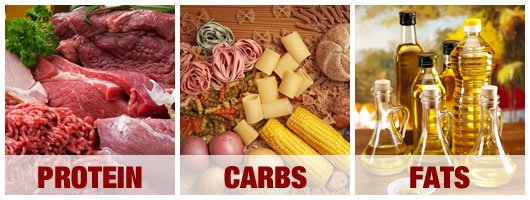
The primary nutrients humans consume are protein, fat and carbohydrates.
Understanding the role each of these primary nutrients plays in our health and in our ability to gain or lose weight is an important feature of this diet program.
I strongly encourage you to familiarize yourself with this portion of the diet, as it will have long-lasting ramifications on your ability to lose weight.
Protein
Proteins are the foundation of your body’s cells, tissues and organs.
They are essential to your muscles, hair, skin, organs and hormones.
While the body can survive without eating another carbohydrate and while it can last for extended periods without eating fat, a lack of protein in your diet will cause degeneration of your muscle tissue and organs, which will eventually lead to death.
Knowing how important protein is to the body, it is unbelievable to see how many people still get most of their calories from high-carbohydrate diets.
Several studies have shown that the recommended daily allowance for protein consumption is far lower than it should be... especially for those engaged in regular exercise.
What this research has shown is that people following the “recommended daily allowance” of protein consumption while engaging in regular physical activity were actually losing valuable muscle tissue, because there was not enough protein in the body to repair and rebuild their muscles after their workouts.
Proteins are made up of amino acids and there are just 20 amino acids that make up ALL human proteins. Of these 20 amino acids, the body can only produce 12 of these itself. This means the other eight amino acids must be obtained through the foods you eat.
Lysine, leucine, isoleucine, methionine, phenylalanine, threonine, tryptophan, and valine are the Essential amino acids that are not made by the body (there are two others necessary for infants and small children).
We get these amino acids when we consume proteins like meat, fish, poultry and legumes. Protein sources that contain adequate amounts of all of the amino acids are called “complete proteins.”
Those food items that do not contain all or adequate amounts of amino acids are known as “incomplete proteins.”
In general, animal proteins (meat, fish, poultry, cheese, eggs) are considered “complete proteins.”
The “incomplete proteins” are those that are vegetable based, usually in the form of grains, legumes, nuts and seeds.
To get enough essential amino acids through vegetable protein, one usually has to combine several different food groups together in a strategic combination.
Breaking down and processing protein takes a lot more energy and much more time than it does to break down other nutrients. In other words, the body has to work a lot harder to digest protein than it does with carbohydrates and fat.
The extra energy it takes to break down and process protein reduces the amount of energy (calories) your body receives from the food it consumed.
This is good. Also, because it takes longer to break down and to assimilate protein, the process of emptying the stomach takes longer as well, which causes us to feel full longer, which reduces hunger pangs and increases the time we need before our next meal.
Effectively, this results in fewer meals (or at least fewer big meals) eaten each day and as a result, fewer calories consumed.
It is believed that the body can only use about 50% of the protein we eat.
This means the other 50% is eliminated from the body as waste, because protein is not stored in the body in the same way that fat and carbohydrates are.
So when you eat calories primarily from protein, you can rest assured that these protein calories are repairing and rebuilding your body with the excess being eliminated as waste.
The extra protein will not be stored as body fat. As you will see, this is in stark contrast to the excess carbohydrates and fat we eat, which are stored in our bodies (in our fat cells) instead of being eliminated.
A diet adequate in protein is essential for anyone who wants to lose excess body fat.
Protein consumption not only increases fat oxidation, it also has the remarkable ability to spare lean body mass. You should be doing everything humanly possible to ensure that your lean body mass is spared.
The reason for this is when your lean body mass is spared, your resting metabolic rate is maintained. When you lose lean mass, your metabolic rate slows down.
Losing lean mass is a common occurrence in those who eat low-calorie diets WITHOUT enough protein, and in those following low-calorie diets without sufficient protein (vegetarians and vegans).
A very important point to understand is that the loss of lean body mass virtually guarantees the regain of any fat loss.
This is the primer for “yo-yo” dieting and the reason for the high failure rate of most diets. Most diets focus on just the numbers on the scale.
The problem comes when lean mass is lost in conjunction with body fat, which is the case in most mainstream diet plans.
The weight is lost but because much of the weight was lean mass, the metabolism has slowed and it is unable to effectively stop or even slow the weight from coming back.
Adding protein to your meals causes your body to release a hormone called glucagon.
Glucagon works to slow down the harmful effect of excess carbohydrates being deposited into our fat cells. It does so by slowing the rate of absorption of those carbohydrates.
Additionally, there are new studies that have shown that when the body releases glucagon (by consuming protein in your diet), it also works to stimulate fat-burning by freeing up your stored body fat, so that it can be used to fuel your body.
As you will see, when we increase protein consumption and significantly decrease the amount of carbohydrates we consume, we benefit from a dual fat-burning effect.
On one hand, when the body does not have carbohydrates to turn to in order to fuel the body, it begins to use stored body fat.
Secondly, the release of glucagon into the body appears to have the added effect of attacking the fat stores that the insulin has worked to preserve. This guide is strategically designed to take advantage of both of these events.
Whey Protein
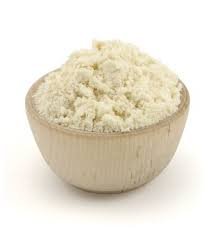
Whey protein is considered a “complete protein” in that it has all of the amino acids you need to sustain life. In the past, whey protein shakes were awful and gritty. Science has come a long way, however, in making these shakes a lot more tolerable.
Do they taste like your favorite milk shake topped with whipped cream and a cherry?
Hardly… but depending on the brand and the flavor, there are some really good choices out there that are actually pretty good. And by adding some sugar-free flavored syrups (like they use in coffee shops), you can incorporate some good variety and really make some very tasty shakes.
When choosing a Whey Protein to use in this diet, be sure to choose a brand that allows you to keep carbohydrates as low as possible (no more than three grams per scoop).
Additionally, during this diet, you will want to keep fat as low as possible as well (no more than three grams per scoop). This will ensure the best possible conditions for your weight loss goals.
Depending on your weight, you may need more than one scoop. If you take two scoops, just be sure that you are not exceeding six grams of carbohydrates. Six grams of carbohydrates will not have much of an impact on your blood sugar.
As you will see, whey protein will make up a large component of this slimming program.
For some, purchasing whey protein powder to make up many of their meals for the next 21 days may seem expensive, but when you consider that you can get all your meals for the day for about $5, this is actually pretty cheap.
Plus, you’ll find that a lot of time is freed up that is normally spent on cooking and eating meals, which gives you more time to take a walk or engage in other exercise to really drive this diet home.
Fat

Unfortunately, fat has received a bad rap for decades. So much so, that it has become ingrained in our minds to intuitively reach for anything that says “low fat” even when we know better!
The notion that fat makes us "fat" makes perfect sense at face value, especially when you consider how calorically dense fat actually is.
A gram of fat contains nine calories while the same gram of protein or carbohydrates is only four calories.
Fat doesn’t have anywhere near the thermic effect that protein does (only 3% vs. 30%), so consuming fat is not necessarily going to “turbo charge” our metabolism. By the same token, it is important to note that fat by itself also does not make us fat.
In fact, fat plays an important role in many parts of the body. While we can go for long periods of time without fat, we cannot live without it completely.
Those fats that we cannot live without are known as essential fatty acids (EFAs). Research has shown that these EFAs actually help us to mobilize stored body fat that we want to get rid of, in addition to having numerous other health benefits.
In this slimming route, we will focus on getting an optimal amount of these good fats, to enhance our ability to lose weight fast, while becoming healthier.
Essential Fatty Acids (EFA’s)
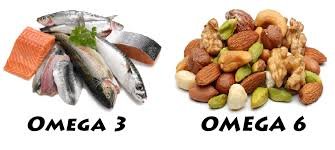
Your health, good or bad, is driven in large part by the level of inflammation in your body and the amount of lean muscle mass you have. In fact, there are several diseases (including obesity) that are linked to inflammation and the lack of muscle mass.
When you control the inflammation in your body, you can effectively control the onset of numerous diseases, including type II diabetes, heart disease, depression, arthritis and obesity.
Muscle mass decreases over time, especially when we are not eating enough protein and not engaging in exercise.
The less muscle mass we have, the more weight we will gain. Lean muscle mass is crucial to keeping body fat at bay.
A healthy body is one that has low levels of inflammation and higher levels of muscle mass. While many attribute high levels of inflammation and loss of muscle mass to aging, the fact is that we can keep our bodies young through proper nutrition and exercise.
We get old from the inside out. So, it is important to keep inflammation down and exercise up.
Essential fatty acids are exactly that: essential.
EFAs are mainly polyunsaturated fats. Humans must ingest them because our bodies are unable to create them. Once broken down, EFAs contribute to vital organ function.
regulate body functions and are essential to cardiac cells. Other functions impacted by EFAs are heart rate, blood pressure, clotting, fertility and conception, and immune system functions.
You may have heard EFAs referred to as Omega-3s, linolenic acid, or Omega-6s. The American Heart Association recommends a diet that has EFAs included at least two times weekly, and they say that you should eat oily fish to get the benefits.
Fish oil capsules are a great way to get your essential fatty acid needs. To maximize the effectiveness of this diet, essential fatty acid intake is imperative.
The two major forms of omega-3 fats used by the body are eicosapentaenoic acid (EPA) and docosahexaenoic acid (DHA).
Research has shown that a person who keeps a diet high in Omega-3s is at low risk of cardiovascular diseases.
Other research has also suggested that EFAs may reduce depression and feelings of suicide.
You may be wondering: how will this help my diet? Well, the key to this fatty acid is that during the metabolism of these acids, energy is generated in the cells.
Read more on the next post:
How to lose weight fast in just 3 weeks - The Step by Step Full Guide PART 2
You liked what you read? It took me days to write this article and I would love to receive your feedback.
So follow me, vote, share and comment on this post. Thank you for taking the time to read my post and I hope I have provided you with the right advice to improve your health!
